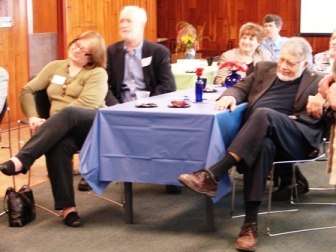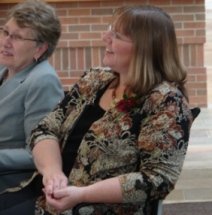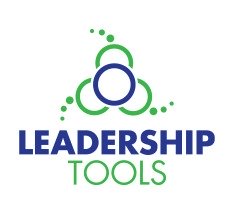Sensitive-Situation
Tools to use when a sensitive-situation or subject requires behaviors that minimize controversy.

Donna Rae Scheffert is a facilitator, trainer, and strategic planner. She brings experience from over thirty years working with high performing groups. Sometimes a sensitive-situation requires an external consultant.
Donna Rae Scheffert, is President of Leadership Tools, a U.S. based consulting firm. She is a retired Leadership Development Specialist from the University of Minnesota Extension. She spent over 20 years creating leadership information, tools and training. She is the owner of online-leadership-tools.com
Sensitive Subjects and Situations
Managing controversy does not guarantee that all interests will be satisfied, only that the process will fairly hear all positions.
Therefore, the role of facilitative leader or facilitator is appropriate for these cases. Sensitive-situations can be managed by focusing on several behaviors.

Maintain a Neutral Stance in a Sensitive-Situation
Facilitators must understand that their role is to moderate and guide communication, not make personal contributions to it, or push their own agenda.
By sharing opinions on subject matter, facilitators threaten the open sharing of thoughts and feelings, and may close off learning. Instead, facilitators remain flexible and responsive to the group. The facilitator's neutrality throughout the discussion is crucial.
An effective way for facilitators to avoid voicing their personal opinion is to reflect questions back to the group. For example, when asked whether s/he supports small farmers, a facilitator may say:
“Small and large farming is a controversial topic. What do you think are the main factors that encourage and restrict production choices?"
By responding in this way the facilitator has remained neutral and encouraged further reflection by the group.
Be an Active Facilitator in a Sensitive-Situation
As the discussion leader, neither dominate the discussion nor passively observe it. Instead, be actively engaged and guide the group when necessary. Your role as the facilitator does include intervening in the discussion when needed to:
• Keep the conversation on topic
• Correct misinformation, or refer a question to another resource person for fact checking and validity
• Create transitions for the various questions
• Be mindful of participation and power dynamics
• Begin and end within a reasonable time

Respect People and Maintain Boundaries in a Sensitive-Situation
Keep group members focused on the ideas and not the people who share their ideas or people to blame. This thought can be introduced at the beginning of a session as one of the ‘ground rules.’ During the discussion it is sometimes necessary to intervene to:
• Provide reminders about respecting the right of others to have differing opinions
• Redirect conversation away from talking about certain people or people who are not in the discussion
• Focus on what can be done by people in the discussion and not create agenda’s for others
• Re-state sensitive questions posed by group members, and open up conversation to the group
Some other ground rules to consider: Listen and learn, agree to disagree, share and exchange ideas, be brief while staying on our subject, criticize ideas and not people
For example: A participant says, “I think we ask too much of schools when it is parents who should take more responsibility! If parents weren’t so irresponsible we wouldn’t all have to pay for their bad behavior!”
Restate: “What do you think we can do to prevent obesity, if anything? What role do you think the school could have, if any? How could we reduce the costs to our health care system?”
Frame your Topic for Open Discussion in a Sensitive-Situation
Present topic as a challenge to be understood, and encourage the consideration of multiple solutions.
One reason for group discussions is because there are no easy solutions’, or full compliance of known solutions. If this were the case, then training or technical assistance would be done in place of group discussion. And, rich discussion that results in creative solutions is often found in diverse groups.
Given this formula, the possibility for conflict or controversy is present.
Avoid Closers: The USDA recommends four servings a day of fruit and five servings of vegetables.
Use Openers: The USDA recommends four servings a day of fruit and five servings of vegetables. "Let's consider all the ways kids could get more fruits and vegetables in their diets."

Be Open to Learning in a Sensitive-Situation
Facilitators who view discussion as a mutual learning opportunity communicate this attitude to the group.
This means that facilitators themselves remain open to learning from others, and treat everyone's contributions as credible and educational. This serves to validate group members and helps to avoid arguments between them.
Sometimes the ‘off the wall’ statement is where learning occurs; most times additional information and insight emerges from within the group. If it doesn’t, after some give and take within the group, the facilitator may state the need to find more information and move on.
Avoid responding to comments with a judgment (like right, good one) or nonverbal cue (like eye-rolling or overt facial expression).
Qualities that a facilitator should aim for open interaction to foster learning in a group includes:
• Somewhat informal manner
• Be empathetic
• Maintain a sense of humor
• Stay interested in group discussion
• Be present, real, direct, and genuine

Stay Grounded When the ‘Heat is Turned Up' in a Sensitive-Situation
If we can get out of our own emotional confusion, we can begin to see the heat as an opportunity to explore different views about the topic.
One way to do this is to use the image of leaving the dance floor of the discussion and our emotions and going up to the balcony. From there we can look for a relevant concept or question within the hot moment. Often the difficult statement illustrates the complexity of questions being discussed.
Practice Virtues and Avoid Vices in a Sensitive-Situation

Four Virtues of Exceptional Facilitators
-Intentionality (explicit theories & values)
Intentional facilitators know their role and care about the responsibility that goes along with it. They are present with the group and use facilitation theories and promising practices.
-Perceptiveness (awareness of self and others)
Know thy own self is a general guideline for facilitators. Interest in others, and perceptiveness about them can make the situation better.
-Technical Capabilities (skills & techniques)
As with most professions, facilitative leadership requires adeptness of skills and knowledge and use of multiple techniques.
-Political Awareness (power and rank)
Hidden dynamics of power, hierarchies, and rank underlie many sensitive-situations. Being able to 'read between the lines' is a useful virtue of facilitators.
Source: Glyn Thomas, Dealing with Difficult Groups, 2010
Vices of Facilitators
• Over-attachment to ideas
• Overreaction to criticism
• Moderating negative thinking(about self & about others)
• Strong emotions erupting

Encourage Participation by Many in a Sensitive-Situation
Facilitators should clearly communicate that discussion is an egalitarian process in which everyone has a right to speak, or to choose not to speak.
Group members who have not spoken should be encouraged to do so, if they wish. This can be accomplished by creating a space for more group members to speak. State something like:
"Let's give an opportunity to hear from some people who haven't spoken yet..."
Or, “We have a few more minutes for discussion; who else would like to share who hasn’t had a chance to yet?”

Use "Stacking" to Level the Playing Field in a Sensitive-Situation
In robust discussion sometimes many people wish to speak at once. The facilitator can guide the allocation of speaking time by "stacking" (or "queuing"). This involves the facilitator identifying and placing in some order those individuals who wish to speak.
One example of this technique is to list the names of the four people who have raised their hands, invite them to speak in order, and then indicate that you will recognize others who wish to speak after the four people have finished.
Another technique is to simply give a nod to a person who wants to speak, acknowledging that they have been noticed and will be called upon soon. For example, acknowledge and say:
“Bruce, Kathy, Larry, Susan…then we will come back for others to comment.”

Promote Active Listening and Dialogue in a Sensitive-Situation
Staying quiet and considering others remarks can be challenging when controversial topics are discussed, but is crucial to respectful communication.
Facilitators should discourage participants from professing their opinions without considering and responding to others' comments.
Instead, facilitators can model communication in the form of a dialogue, in which participants listen and respond to each other. Sometimes it helps to remind the group that they are talking to one another, not the facilitator.
Have a Fallback Position in a Sensitive-Situation
One of the common errors when facilitators get stuck and when what they are doing isn’t working is to do more of the same with greater intensity.
For example, if you are a structured person, then you may respond to controversy with more structure. This is likely to create even more tension.
Some options that may be necessary in extreme circumstances include:
-switching facilitators or relying on a co-facilitator
taking an unplanned break
-breaking into small groups
-doing a ‘go-around’ and hear from each person and/or
-adjourning the meeting.
If you transition to a fallback position do so smoothly without publically acknowledging it to the group.
References
Developed for Farm to School: Growing Our Future.
Farm to School: Growing Our Future was produced by University of Minnesota Extension, Minnesota Department of Health, and Twin Cities Public Television, with funding from the Centers for Disease Control and Prevention.
For more information on Farm to School visit www.extension.umn.edu/farm-to-school
© 2012, Regents of the University of Minnesota. All rights reserved. University of Minnesota Extension is an equal opportunity educator and employer. In accordance with the Americans with Disabilities Act, this publication is available in alternative formats upon request. Direct requests to the Extension Store at 800-876-8636.
For more information
Need Leadership Tools?

For more information on Bad Behaviors in Public Meetings see Incivility in Public Meetings published by Boise State
Sensitive-Situation
Facilitation. Training. Strategic Planning.
Donna Rae Scheffert
809 Mayflower Ct.
Northfield, MN 55057
612.360.4484 (telephone)
leadershiptools@charter.net (e-mail)
